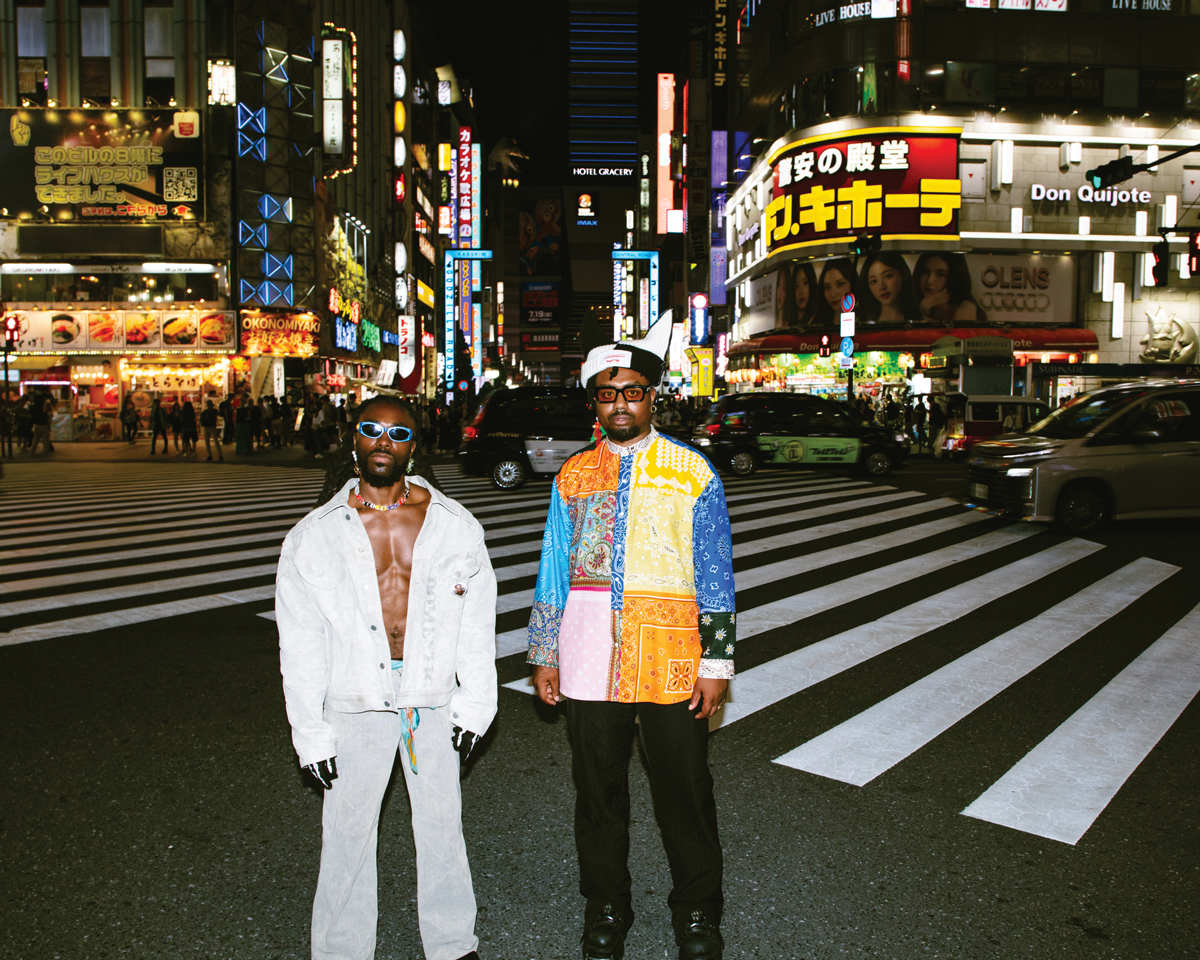{Photograph} courtesy of Chika Takai
When Megan Thee Stallion’s viral 2024 hit “Mamushi” was launched, listeners have been shocked when Yuki Chiba’s rapid-fire Japanese rap all of a sudden reduce via the audio system. The music, named after a venomous Japanese snake, was many People’ first introduction to Japan’s thriving hip-hop scene. However that nation’s hip-hop roots attain again to the Nineteen Eighties, when parts of American hip-hop tradition—together with breakdancing, graffiti, and style—discovered their option to and impressed a brand new technology of followers and artists.
Whereas the densely worded English lyrics of rap music itself may make the style inaccessible to many overseas listeners, the broader tradition of hip-hop supplied visible and aesthetic parts that transcended language limitations and laid the inspiration for its world enchantment.
At present, Japan boasts the second-largest music market on this planet, valued at greater than $2 billion. Even in a booming business crowded with rivals from Ok-pop to J-pop, Atlanta artists proceed to domesticate loyal followers in Japan, whereas Japan’s personal cultural exports have impressed artists right here within the rap capital of the USA.
Chika Takai—a mannequin, dancer, and DJ for the Atlanta Hawks—credit Southern hip-hop with inspiring her to maneuver to the U.S. “I’m proud to be based mostly in Atlanta, the capital of hip-hop,” says Takai, who moved right here to check dance, music, and English and later earned a spot on the Hawks dance staff. In her years as an Atlantan, she’s witnessed firsthand how music shapes the town’s tradition.
“Atlanta, like New York and California, has a really distinctive sound that I gravitated to,” she says. “Not simply the Southern draw of T.I., but additionally the dance-inspired tones of Yung Joc and Unk and the lyrical vary of OutKast.” Takai’s love of hip-hop music started in her native Japan when she was a younger little one dancing round Tokyo. Her curiosity in Atlanta’s hip-hop scene, from underground entice to Prime 40 hits, in the end led her to pursue a profession as an expert DJ.
“All the way in which from Tokyo, it offered me with a glimpse into Atlanta’s tradition that was just about spot-on,” she remembers. In Japan, she notes, American hip-hop is a supply of deep fascination and inspiration. “Folks don’t simply take pleasure in hip-hop as leisure. They research it, embrace the traits, and construct their very own distinctive scene impressed by it.”

{Photograph} courtesy of Satin Coronary heart
That cultural change travels in each instructions. The progressive Atlanta-based rap group, EarthGang, lately put their admiration for Japanese popular culture entrance and heart with Tokyolanta, a theme that undergirds their newest album, Excellent Fantasy. The duo, who grew up devouring Japanese anime on Cartoon Community after college, infused these aesthetics into the visuals that accompany Excellent Fantasy, from anime characters of their music movies to martial arts references in social media reels. EarthGang even went to Tokyo to movie among the content material.
Each Atlanta and Japan’s hip-hop scenes have been born out of marginalized communities, the place music is usually a highly effective device for addressing sociopolitical points. American rappers have lengthy used the style to voice the struggles of Black communities, whereas Japanese rappers have turned to hip-hop as a method of rebelling towards the nation’s pressures of conformity. However every scene has its personal distinct traditions and tradition, which incorporates its personal assumptions about who belongs.
Although she’s been in Atlanta for years, Takai feels she is usually nonetheless considered as an outsider within the metropolis’s hip-hop group, particularly within the DJ scene, which has historically been dominated by Black males. “That is the place I hit the trifecta—being Asian, feminine, and an immigrant is the proper components to be underestimated,” she says. “Folks generally assume that I don’t perceive the variations [of] hip-hop throughout the style or I culturally can’t connect with the music, as a result of I’m not what they’re used to seeing.”
As cross-cultural collaborations proceed between Atlanta and Japan, Takai stays devoted to bridging the gaps between the nation she comes from and the town she now calls dwelling. “There’s room for everybody,” she says of hip-hop. “Once you’re in an area the place you might be totally different, know that you will be essentially the most remembered.”
This text seems in our March 2025 concern.
Commercial

